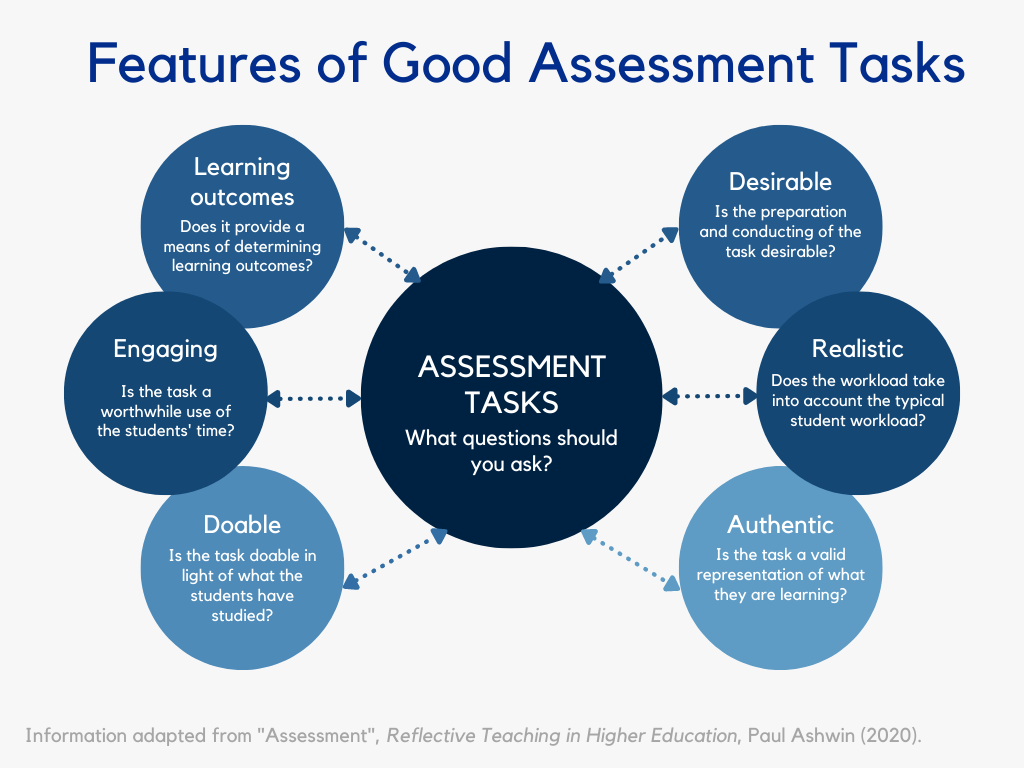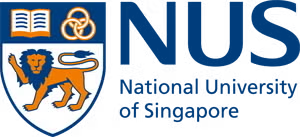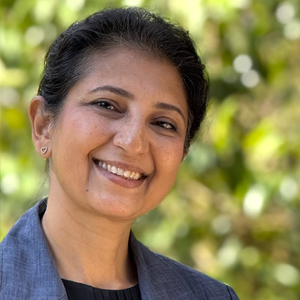How would you know if your course’s assessment was an effective one? What would be the desired outcome for students once they have completed the task? Here are six features of a good assessment task to consider:

- It must provide a means of determining if the intended learning outcomes for the course have been met.
- The task should be an engaging and interesting use of your students’ time.
- The task should be doable in light of the opportunities that students have had to study and practice.
- The task must encourage students to engage in desirable study activities. It shouldn’t encourage short-term memorization of information that will soon be forgotten, for instance.
- The task should not place an unrealistic burden of work on students to complete; the load should take into account the typical workload of students in the wider programme of study.
- The task must be seen as realistic and authentic, having some identifiable relationship with the kind of task that students may face on graduation, rather than something they would only encounter in the university.
What do effective assessment tasks look like in practice?
Here are some example from our faculty members:
- Assessment as Learning: Using PeerWise for collaborative online learning by WU Jinlu, Department of Biological Sciences, Faculty of Science (FoS)
- OTOT: Exploring a Flexible Approach in Formative Assessment by Bimlesh WADHWA, Department of Computer Science, School of Computing
- Self-Reflection in Language Learning via a Language Portfolio by Eduardo LAGE-OTERO and Matthew LING, NUS College
Why the focus on formative assessment?
Besides focusing on the essentials of the assessment task, assessment is often considered purposeful and meaningful if it provides feedback that is useful and actionable for both students and teachers, which then leads to subsequent changes in learning and teaching practice. The emphasis on feedback draws parallel with one of the key purposes of formative assessment and as such, integrating formative assessment into teaching and learning is often seen as an effective assessment approach that is beneficial to students and teachers.
Further readings
For a good guide on assessment design and approaches, see Bryan C. and Clegg, K. (Eds.) (2019). Innovative assessment in higher education: A handbook for academic practitioners. London: Routledge.



































































